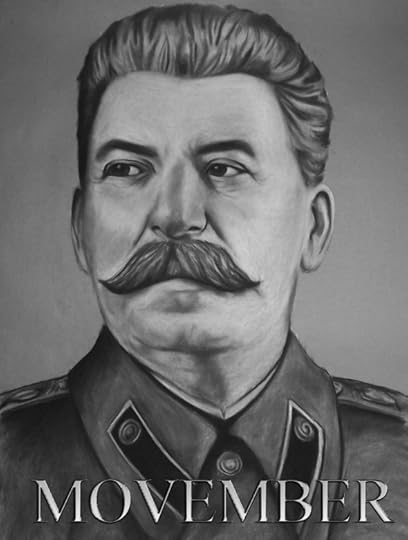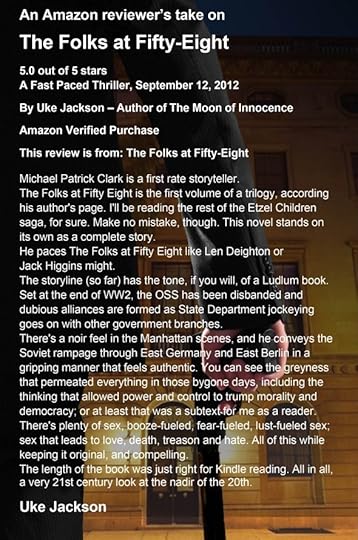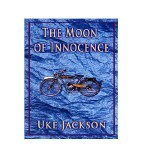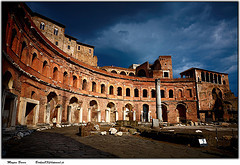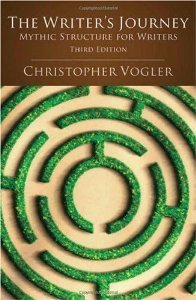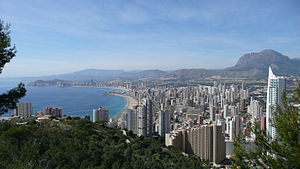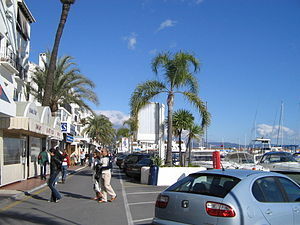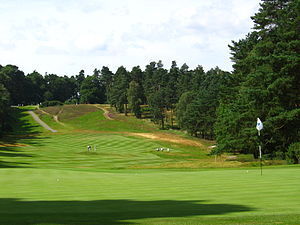Michael Patrick Clark's Blog, page 6
November 13, 2012
Digital Book Today – Author Interview #132
November 12, 2012
 Our author interview today is with Michael Patrick Clark author of
The Folks at Fifty-Eight
(4.3 stars, 24 reviews). Before we get to the interview a brief book description: Gerald Hammond is the exception to the rule; an honourable spy, whose lofty principles have brought him nothing but loneliness and isolation. Catherine Schmidt is the stunning young daughter of an assassinated spymaster, whose murderous quest for vengeance has left her at the mercy of the infamous Head of Soviet State Security. On a covert operation, in Soviet-occupied Germany, Hammond has no knowledge of the unseen forces that sponsor and oppose his mission. He only knows that he must somehow save her to save himself, but, as ever-more disturbing revelations come to light, begins to wonder which poses the greater threat; the enemy he runs from, or the friend he runs to? Set against a factual background of government conspiracy, and one of the most audacious espionage coups in history, the Folks at Fifty-Eight is a beautifully-paced tale of seduction, betrayal, blackmail, and murder that blurs the boundaries between fact and fiction.
Our author interview today is with Michael Patrick Clark author of
The Folks at Fifty-Eight
(4.3 stars, 24 reviews). Before we get to the interview a brief book description: Gerald Hammond is the exception to the rule; an honourable spy, whose lofty principles have brought him nothing but loneliness and isolation. Catherine Schmidt is the stunning young daughter of an assassinated spymaster, whose murderous quest for vengeance has left her at the mercy of the infamous Head of Soviet State Security. On a covert operation, in Soviet-occupied Germany, Hammond has no knowledge of the unseen forces that sponsor and oppose his mission. He only knows that he must somehow save her to save himself, but, as ever-more disturbing revelations come to light, begins to wonder which poses the greater threat; the enemy he runs from, or the friend he runs to? Set against a factual background of government conspiracy, and one of the most audacious espionage coups in history, the Folks at Fifty-Eight is a beautifully-paced tale of seduction, betrayal, blackmail, and murder that blurs the boundaries between fact and fiction.Author Interview with Michael Patrick Clark
Why did you choose this particular story?
Some claim there is nothing new or interesting left to write about The Cold War. I disagree. The truth is, for all those thousands of Cold War espionage stories that largely focused on a physically-partitioned Germany, many of the most audacious and significant events occurred before The Berlin Wall was even thought of.
The story of how Russia came to develop the atom bomb, in so short a period, is a good example. Although a few of those involved in coal-face espionage were named, prosecuted, and widely reported on, and stories abound of individual spies stealing individual secrets, it is remarkable that no one has previously used the strategic-level plot as background for a best-selling espionage and conspiracy novel.
Part of this is due to the enigma that was pre-internet, pre-Gorbachev, Russia, and the paranoia of its leadership; making in-depth research virtually impossible. Part is due to the understandable reluctance of western politicians and security chiefs to acknowledge the damage caused by political in-fighting and bickering incompetence.
For all of that, perhaps the most compelling reason lies in the refusal of either side to publicly admit the true extent of their own lies, hypocrisy, and shameless opportunism.
What was unique about the setting of the book and how did it enhance or take away from the story?
The Folks at Fifty-Eight is set in occupied Europe and The United States, during the immediate aftermath of The Second World War. As espionage novels go, this is a somewhat unfashionable period. At this time there was no Berlin Wall, no KGB, no STASI, and, in a Cold War sense, no acknowledged belligerence between the former Allies. If there was a ‘phoney war’ prior to WWII, then this was The Cold War’s ‘phoney war’.
At the time, the United States and Britain were largely in the grip of post-war euphoria, while mainland Europe was gripped with both the fear and reality of Stalin’s rapidly-descending ‘iron curtain’. This temporary ‘state of flux’ allowed the ‘men in grey’ to plot and scheme, and me, as a novelist, the freedom to take so many little-known facts and weave them into a truly fascinating espionage and conspiracy novel.
What specific themes did you emphasize throughout the novel? What were you trying to get across to the reader?
Apart from the constant blurring of fact and fiction, the overriding theme is one of a decent man’s gradual descent into corruption. If there is a motto, it is ’don’t trust anyone’ no matter how well-intentioned they appear. Everyone in the book has a guilty secret, everyone has a selfish agenda, everyone has a price, and no one is as they appear.
Are the characters real and believable? Can you relate to their predicaments? To what extent do they remind you of yourself or someone you know?
The Folks at Fifty-Eight is based on a true story. The backcloth of little-known fact, is interwoven with the fictitious thread of an espionage and conspiracy thriller, with obvious parallels to the Faustian legend. I have intentionally altered the backgrounds and descriptions of certain key characters, but kept the story historically accurate, with personalities, motivations, and activities as close to the truth as possible.
For example. . .
Marcus Allum (Hammond’s boss at The State Department) is based on Frank Wisner; the ‘handler’ of defector Reinhard Gehlen, who ran an Eastern European spy network for the U.S. Wisner was a former OSS chief in the Balkans, a manic depressive who later became head of CIA covert operations.
The character of Daniel Chambers (The sinister manipulator of both Allum and Hammond) is based on Allen Dulles. The former President of the Council on Foreign Relations later became the longest-serving head of the CIA.
The character of Morton Simmonds (The FBI agent from whom Hammond finally discovers much of the truth) is based on Indiana State graduate William King (Bill) Harvey: the senior FBI agent who headed up almost two-hundred-and-fifty agents, in a largely unsuccessful purge of the Federal Government and White House.
History records that Lavrenti Beria was, arguably, Stalin’s most infamous henchman; a mass-murderer, and serial rapist, who controlled Stalin’s terror apparatus from his third-floor office in The Lubyanka. Perhaps less known is that Beria was also an espionage genius, who devised and implemented one of the greatest espionage coups of all time.
How do characters change or evolve throughout the course of the story? What events trigger such changes?
On the whole, I have received some fantastic reviews, particular when it came to characterisation, and I would like to thank those who have given up their time to provide feedback and encouragement. However, one or two of the critics felt the ending was flawed, because they felt the hero, Hammond, does something out of character. This was the most disappointing criticism I received, because I tried, throughout, to show how Hammond’s values are slowly and inexorably compromised. Given that progressive degeneration, the ending should not have come as any great surprise, and lest anyone forget. . . this is the first book in a trilogy. There will be plenty of time and opportunity for salvation or a change of heart.
In what ways do the events in the books reveal evidence of your world view?
The problem with conspiracy theorists is they have a bad name. Today, any pronunciation of the words ‘conspiracy theory’ can only be accomplished with a glance to the heavens and the eyebrows raised. When I refuse to take the word of any government at face value, I find myself apologising at the same time, and yet, whenever we turn on the television or pick up a newspaper, we are constantly bombarded with evidence of various high-level and government conspiracies.
That is not to say I adhere to the rantings of the ‘lunatic fringe’.
No, I don’t believe the Wall Street Crash was the work of The Council on Foreign Relations. No, I don’t believe that America faked the lunar landings. No, I don’t believe the 9/11 and 7/7 attacks were the work of the CIA and MI5. No, I don’t believe that Elvis is alive and living in South America with Adolf Hitler.
You see, that’s the problem for anyone who questions the world around them, or is sceptical of government and establishment rhetoric. They are immediately branded as ‘conspiracy theorists’ with all the associated vilification that such a title implies and generates.
The Council on Foreign Relations is a case in point. In the ninety-odd years since its inception, I believe the organisation has been good for American foreign policy and good for the general health of western economies. However, I also believe that, during that same period, certain individuals with selfish and specific personal agendas have succeeded in manipulating the organisation for their own ends.
Was there a basis for your story? A previous experience? Something else?
When I quit the computer industry and moved to Spain I did very little, other than swim, play golf, and drink Rioja. For a while that was great, but I soon discovered that I needed something to keep the wheels turning and the brain active, and so I began writing.
At first it was difficult, because I had to learn the craft, and that, literally, took years. When that was done, and I began my first spy novel, I had another dilemma: what to write and how to start? The first answer was easy; I wanted to write, à la John Le Carré, but that still left the question of how and where to begin.
And so, for my first spy novel, I employed a technique used by feature film directors. Start with the close-up of a face, and then slowly pan-out, until we can see the clothing, then farther, until we see the immediate surroundings, and so on, until we can see the complete picture. At each juncture I had to make a decision about the next revelation.
I began with a character: a young man. As I slowly panned-out, he became a British soldier. The soldier was sitting in a truck. The truck was in the middle of a battle. The battle was in a war. The war was WWII. The location was on the banks of the River Weser, in Germany.
The time was late 1944. . . I had my start.
The more I wrote, the more I needed to research. The more research I did, the more I learnt. The more I learnt, the more I developed both plot and background. The entire trilogy grew from that one face.
That book became the third part of The Etzel Trilogy: The Dreams of Etzel. Through my thirst for more and more knowledge, I was able to outline the second part, Hierarchies of Greed, and finally outline, develop, and write the first part: The Folks at Fifty-Eight.
What research did you have to perform to back up your story? Any research which really opened your eyes or gave you new respect for a topic or profession?
The research effort was massive. Not only did I have to learn about everything day-to-day 1946, but I also had to research 1946 occupied Europe and post-war Washington D.C. I also had to research Stalin’s Russia, and there is very little definitive material on that. You see, I wanted to write a book based on little-known fact, interwoven with a fictitious story of spies, sex, and sedition. I didn’t want to have Cold War and modern history buffs pull apart my story, or be able to ‘see the join’.
It was through my research on The Dreams of Etzel that I discovered the truth about the early Cold War period, and through that I developed both the espionage fact and espionage fiction forHierarchies of Greed and The Folks at Fifty-Eight. One effectively fed the other two.
As for opening my eyes. . . every successive day did that. I couldn’t believe how naïve and amateurish so much of the earliest western espionage efforts were, and how accomplished Lavrenti Beria was by comparison. It was a fascinating period, with larger-than-life characters, and I loved every minute of my research.
What is your method for writing a book? A certain amount of hours every day? A certain routine? Are you character/story builder or an outliner or some other method?
I write every day, sometimes seven days a week, and sometimes all day. Because there is, by necessity, such a high level of research, I usually sit down to write at eight a.m. If I haven’t got the words flowing by nine-thirty or so, I stop and move on to more research, or maybe start writing a blog article or something of that ilk. On top of that, and being an Indie published author, there is always so much to do that doesn’t necessarily demand creativity. Just fitting it all in is a problem.
How do you get past writers block or distractions like the internet?
I don’t. If I’m in the mood to be distracted, I’m probably not about to write anything worthwhile. I love writing, and so if I’m not in the mood to write, for any reason, I just go with whatever has caused that emotion. As for writers block; I have no idea what people mean by that. We each lack creativity at different times; that’s a human condition. I sometimes think that giving it a fancy title merely prolongs and exacerbates what would otherwise be a temporary blip.
Favourite book from childhood?
That’s easy; Shadow the Sheepdog, by Enid Blyton. I read it over and over again, and only stopped when the teenage years arrived and it became slightly embarrassing to admit to loving.
What’s on your desk? Can you see your desk? Describe what you see when you look around.
My desk is a clutter: computer, printer, keyboard, software, trinkets from my wife, telephones, pens and notebooks, coffee mugs, digital photo frame, Dictaphone, and a pair of binoculars. When I look out of my window, slightly to the left, I see the Atlantic Ocean and the cliffs of North Cornwall, all the way up to Hartland Point and out to Lundy Island.
If I look slightly to the right, I see cattle and sheep and goats and ponies, patchwork fields, and tourists by the truckload. If I look around the room I see my favourite painting by David Cartwright, of the charge of the Scots Greys at Waterloo, and bookshelves crammed with reference material and all manner of other books, discs, Arsenal memorabilia, and Dresden military figurines. There’s also a globe, a detailed map of the world, a music keyboard (I’m definitely gonna learn to play one day), a huge painting of men playing pool, picture of my wife, picture of mum, and a leather armchair that I like to slump into when I’m feeling precious.
Website http://www.michaelpatrickclark.com
Twitter @mpclark77
Facebook http://www.facebook.com/michaelpatrickclark

November 7, 2012
It’s…
October 26, 2012
Are insults more insulting if they’re graphic or geographic?
A few weeks ago I took a trip into the village. Even though it’s only a five minute walk from my front door to the farthest shop, I did as I always do and took the car.
I can almost hear what you’re thinking. Indolent, unhealthy, environmentally irresponsible. . . yes, I know all that, but I still prefer to do my walking along the cliff path or on the golf course.
Now Cornish folk are always affable, and more often than not downright friendly. I always highlight the difference between people from Cornwall, and those from the more-fashionable English counties around London, by saying that Cornish people will never give you the impression that they believe themselves to be more important than you. That is seldom the case around the English Home Counties, but, like every other one of the façades that we tend to assume whenever we open our front doors, it is only so deep.
She was a typical Cornish girl, with a face lined by hardship and time, and those wild salt-laden gales that constantly drive in from the North Atlantic, over the craggy North Cornwall coastline and across the moors. She had parked her car, on the no-parking lines, immediately outside the local grocery store, and was sitting with the engine switched off, presumably waiting on a friend.
A second car had parked behind her, and, as I approached from the opposite direction, the driver began to pull out and into the road.
Being familiar with the outwardly obliging nature of Cornish folk, I stopped my car and called the second driver on, before continuing on my way and parking some thirty yards farther along the street. I pulled in at the side of the road, got out of my car, and then walked back to the grocery store.
As I passed by, she climbed out and began studying the back of her vehicle.
“I can’t see any damage.” She said. I replied with an uncertain smile.
“Damage?”
“Yes. You just hit the back of my car.” I carefully studied her, not sure if she was deranged or joking. She glared back. “You’re lucky, you didn’t dent it or damage the paintwork.”
I naturally protested my innocence.
“I can assure you that, whoever hit you, it wasn’t me. I was travelling in the opposite direction. I didn’t come within thirty yards of the back of your car.”
“Oh yes you did. . . I felt the bump.”
Not wishing to point fingers of suspicion, or apportion blame, I didn’t mention the other driver, who had just pulled out from behind her. Instead, I pointed to where my car was parked, thirty-odd yards farther along the street and facing in the opposite direction.
“Look. My car is facing the other way, and nowhere near yours. I don’t know who hit you, but it can’t possibly have been me.”
“Oh, yes it was. . . You Incomer!”
That was it. The ultimate insult in Cornwall.
Forget about casting dispersions on parentage, or four lettered words, or sexual innuendo, or graphic descriptions of inadequacy, or any other form of abuse. In this part of the world ‘Incomer’ is just about as insulting as it gets, and in Cornwall its use is widespread.
It means that I wasn’t born and bred in Cornwall. It means, the local tradespeople are very happy to take my money at the store, or fix the electricity or plumbing for a fee, or deliver the mail as part of their job, or smile and say ‘how are you’ as I pass on by, or superficially welcome me and my family whenever we stop in for a drink or a meal at the local pub, but in truth, even after seven years of friendly residence, I don’t fit in around here, and I never will.
And, you know the strangest thing. . . to my way of thinking that word was as shocking as any crass and vulgar commentary, or racist ethnic slur, could have been.
In fact, I would have much preferred she had used the more common and vulgar expletives.
The F and C words may be more graphic, and may, to the untrained ear, seem to be more shocking and outrageous, but, as insults go, telling your neighbour that he or she is only welcome for what they can pay you, or give to you, or do for you, or bring to your business, seems to me to be a thousand times worse.
I am told that the Japanese don’t ‘do’ swearwords. Apparently the Japanese language allows no place for them.
Now I always found the Japanese to be overwhelmingly pleasant and courteous, and I believe that we should always speak as we find. However, if you were to ask an American or British or Australian Second World War veteran, or even a billion Chinese, which is the cruellest race, they would undoubtedly point to the Japanese.
Perhaps the use of vulgar language, when remonstrating, is not simply for the purpose of insult, but more of a pressure-release valve. Maybe the Japanese have merely lacked the linguistic facility to release the pressure. Maybe my Daphne du Maurier heroine, with the unmarked and untouched car, was faced with a similar disadvantage in her available vocabulary. Who can tell, but that one seemingly innocuous incident contrived to permanently sully my opinion of Cornwall and the people who live there.
I will still smile and speak kindly, and give way to other drivers, and laugh and joke with the local tradesmen, and bid a cheery good morning to passers-by, but I no longer feel that Cornwall is my home.
And so, the next time someone calls you a f***ing this or that, just smile and be grateful.
It could have been a whole lot worse, and anyway, they’re probably just letting off steam.
Have a good one.

October 22, 2012
A Review of The Folks at Fifty-Eight
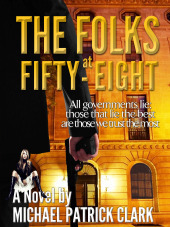 By Wendy Cartmell
By Wendy Cartmell
“Author of the Sgt Major Crane Crime Novels
Crème de la Crème of spy novels
The Folks at Fifty Eight, seems to me in many ways like a traditionally written British spy thriller a la John le Carre.
The difference being the author is writing about the CIA rather than the British establishment.
However, one reviewer commented that it also has elements of Harold Robins about it, which is a very valid point.
The sex is steamy and unusual and I believe is written in to emphasise that sometimes people are not always what they seem to be.
Everyone in the novel has secrets and they are therefore in a position to be blackmailed and/or taken advantage of.
The twists and turns in the novel build slowly, so you are able to relate to each character in turn, before their flaws are revealed. Marriages that on the surface appear to be working are shown to be not only a sham but an ugly nest of malignancy, vitriol and obsession.
The only person not flawed in this way is the reluctant hero. However, he is flawed in other ways and to a certain extent this is a coming of age novel for him as he learns to accept the past, present and future of his life.
The `other side’ as it were are also extremely well drawn characters and it is interesting to see what their lives were like in Russia at the time and how they related to each other. The backgrounds, marriages and friendships are again explored, including how they manipulate not only the Americans, but also each other.
A tremendous book – a definite page turner. I couldn’t put it down and when I had to, looked forward to continuing the story later, as if visiting an old friend. I do hope there are more books and it turns out to be a series.

October 11, 2012
A Review
October 8, 2012
And for October
September 27, 2012
On a return to Ancient Rome
Well, the Ryder Cup is about to kick off in Chicago, with all of the associated jingoism, mass hysteria, and xenophobia that goes with it.
I have loved and played the game of golf for the greater part of my life. I can still remember Jack Nicklaus as a brash young man, with crew-cut hair and belligerent attitude, taking on Palmer and Player in all those early challenge matches. In those days Nicklaus was young and he was arrogant and he was slightly obnoxious, or certainly to me, and certainly to the legions of Americans who worshipped Arnold Palmer.
But, later, I also remember Jack Nicklaus picking up Tony Jacklin’s four footer, on the final green at Royal Birkdale, to tie the 1969 Ryder Cup, in those days when GB and Ireland team religiously got their backsides kicked by The U.S.A.
Times have changed, and attitudes have changed, and now the game of golf has changed. Europe now wins more than its share of Ryder Cups, and the rivalry has intensified to the point where it has become unhealthy. Given a similar scenario, to Nicklaus and Jacklin in 1969, I very much doubt that Tiger Woods or Rory McIlroy would be allowed to do the same thing today, because all that matters in The Ryder Cup today is grinding the opposition into the ground, in an effort to somehow assert one continents superiority over another.
That, to a point, is fine, because winning is why men and women play professional sport; winning cups, or medals, or championships, or the Super Bowl, or Grand Slams, or World Cups, or ten-million dollar challenges, but what worries me is the trend from healthy spectator partisanship toward unhealthy xenophobia.
When I say that I include the players. Players get wrapped up in the competition, and that is good for the game and good for the audience, but when players begin to incite crowds with aggressive gestures and a patently obvious dislike of their opponents, I draw the line.
In physical-contact sports, where aggression on the pitch is transmitted to aggression in the stands, I can understand the difficulty in controlling emotions, but in Golf?
The media, too, are playing their part in fostering this unhealthy rivalry.
In The Olympic Games we saw more attention given to which country finishes where, in the medal table, than to the running of the races and the playing of the games. For an event so steeped in the history, culture, sportsmanship, and all-round good-natured amateurism of The Olympic Games, seeing this blatant jingoistic muscle-flexing left me feeling saddened and sickened. Even in The Paralympics we saw more attention paid to the medal table than to the remarkable achievements of every one of the athletes who overcame so much to just be there and competing.
Jack Nicklaus overcame the natural belligerence and impetuosity of youth to become one of sport’s most gracious and well-loved ambassadors, because the fabric of the game encouraged him to do just that, but how will tomorrow’s stars learn if the fabric of the game is destroyed by blatant commercialism, nationalistic fervour, and xenophobia?
There will always be idiots in sport, whether watching or playing, because sport and intellect are so often mutually exclusive, but in golf, where standards and traditions were once so important, I can see no need for this biennial return to the mob-rule and xenophobic excesses of Ancient Rome and The Circus Maximus.
I love golf, but I won’t be watching The Ryder Cup. I haven’t done so since Kiawah Island in 1991, and I see no reason to change now. But when you watch, if you do, and when you see and hear the chanting, and xenophobia, and all-round lack of grace exhibited by everyone concerned, you will be watching a great sporting spectacle, but you will also be watching the general and inexorable decline of sportsmanship, sporting tradition, and the wonderful game of golf.
Have a good one.

September 25, 2012
Don’t Miss This!
September 23, 2012
Giveaway
September 17, 2012
On favourite places, and the threshold guardians who keep them that way
When Joseph Campbell first wrote of The Threshold Guardian, he wrote of a guardian to what he called The Zone of Magnified Power; an obstacle to the hero’s progress. Campbell wrote of an obstacle that tests the hero, and one that, if overcome, can provide both knowledge and increased power to the triumphant hero on his or her journey to the elixir.
In his book The Writer’s Journey, Christopher Vogler provides a more down-to-earth interpretation of Campbell’s work and identifies many feature film characters who conform to the archetype. Each can vary enormously in power and stature. The villain’s humble bodyguard in an Ian Fleming yarn first tries to eliminate the hero, James Bond. It is only when he fails, and instead stands staring apprehensively at the barrel of Bond’s Walther PPK that he says. . . “Don’t kill me, Mister Bond, and I will tell you where Blofeld is hiding”.
Then we meet more benign Guardians who may wield more power, but offer lesser power magnification. ‘M’, who tells Bond to achieve the seemingly impossible, and save the world from certain destruction without upsetting the establishment, is a form of Threshold Guardian, but is also a powerful ally . In my own novel The Folks at Fifty-Eight we meet the sombre and pretentious Daniel Chambers, a Threshold Guardian who places all manner of obstacle in the path of the hero Hammond.
Outside of novels and cinema screens, we meet many of these people in the course of our daily lives, but seldom recognise them as such, and often consider them villains. The bureaucrat who insists on an orgy of form filling, before he or she will consider progressing your application. The pharmacy assistant, who insists you answer a series of inane questions, prior to dispensing an over-the-counter remedy. The committee member who blocks your membership of the sports club. The interviewer who turns down your application for that dream job. The slush-pile reader who rejected your cherished book proposal.
It is only by learning to negotiate these ‘obstacle placers’ that we are able to progress and enrich our daily lives.
However, not all are necessarily forces for evil or negativity. Occasionally we meet Threshold Guardians who may at first seem to be hindering our progress, but in truth are simply maintaining standards and culture.
How many times have we returned to a favourite place, some years after our initial visit, only to find that it has altered out of all recognition. Rarely is this metamorphosis for the better. It may have succumbed to the demands of commercial enterprise, or criminal activity, or become so popular that its original charm has been lost. It may simply have become worn out, or run down, or been modernised into blandness.
I can think of many such places from my childhood.
Benidorm, a once quaint fishing village, on Spain’s Costa Blanca, is now a nightmare hotchpotch of high-rise hotels and apartment blocks. Streets that once charmed visitors, with all that was wonderful about ‘the essential Spain’ are now awash with ‘all-day breakfast bars and drunken British tourists. Puerto Banus, on Spain’s Costa del Sol, appears to be on the same tragic path to crassness, and is in imminent danger of becoming a garish monument to all that unfettered greed, organised crime, and corporate commercialism brings.
In France, on the hugely expensive Cote d’Azure, we see other examples; the brash commercialism of Nice and its famous Promenade des Anglais, sitting just a few kilometres along the coast from the quainter and more-appealing Croisette in Cannes.
Britain is not immune to the perils of commercialism and greed. As a lover of golf I have watched what I consider to be the decline of one of Britain’s greatest golf clubs. The beautiful and world famous Wentworth Club has improved its facilities, but somehow lost its uniqueness in succumbing to the dictates of commercialism, while a couple of miles away, the equally beautiful and famous Sunningdale Golf Club has retained its charm, defended its honour, and kept its soul.
Some will disagree with me. They will claim that Nice is more fun, or that Marbella is now less stuffy and more affordable, but I know which I prefer. Many will claim that Wentworth is more famous and more prestigious than Sunningdale, with finer facilities, a tougher test of golf, and a more welcoming atmosphere. They are entitled to their opinions, but I know where I would sooner be a member.
Some of this degeneration can be attributed to the cruel gods of progress and modernisation. Some can be attributed to growth of population, and the ravages of time, but whenever we return to a favourite haunt, and find it transformed into ugliness, we will usually find the absence of strong Threshold Guardians.
And, just as I highlighted in the previous paragraphs on the archetypal Threshold Guardians of novels and feature films, these powerful and influential characters, who protect our heritage and thwart this so-called progress, come in many shapes and guises.
On Spain’s Costa del Sol it was a man called Jesus Gil, who took time off from being the archetypal ‘villainous mayor’, to ensure both the safety of local residents and the cultural heritage of Marbella. Some refer to him as a Mafioso-style crook, who got but never served the prison sentence that he was undoubtedly due. Others remember him as the man who made Marbella safe for families to enjoy, without the unwanted attention of those drug pushers, prostitutes, petty criminals, and sleazy bar owners who are once again beginning to infest and infect the lovely Puerto Banus.
Jesus Gil. An archetypal villain? Perhaps, but without doubt a Threshold Guardian of the finest kind.
In the more tranquil and rarefied atmosphere of the Surrey countryside, Sunningdale Golf Club also has its Threshold Guardians. The committee at Sunningdale may be considered privileged and pretentious by many, and may or may not warrant that description, but those of us who fondly remember Sunningdale and Wentworth clubs, in days gone by, and who love the history and heritage of the game, are grateful for them.
And so next time you are thwarted by a Threshold Guardian, just remember that not all are forces for evil, and many are indeed forces for good. Think back to the places you loved as a child, remember how change is not always to be admired, and then think kind thoughts of those who seek to guard and protect.
Have a good one.


